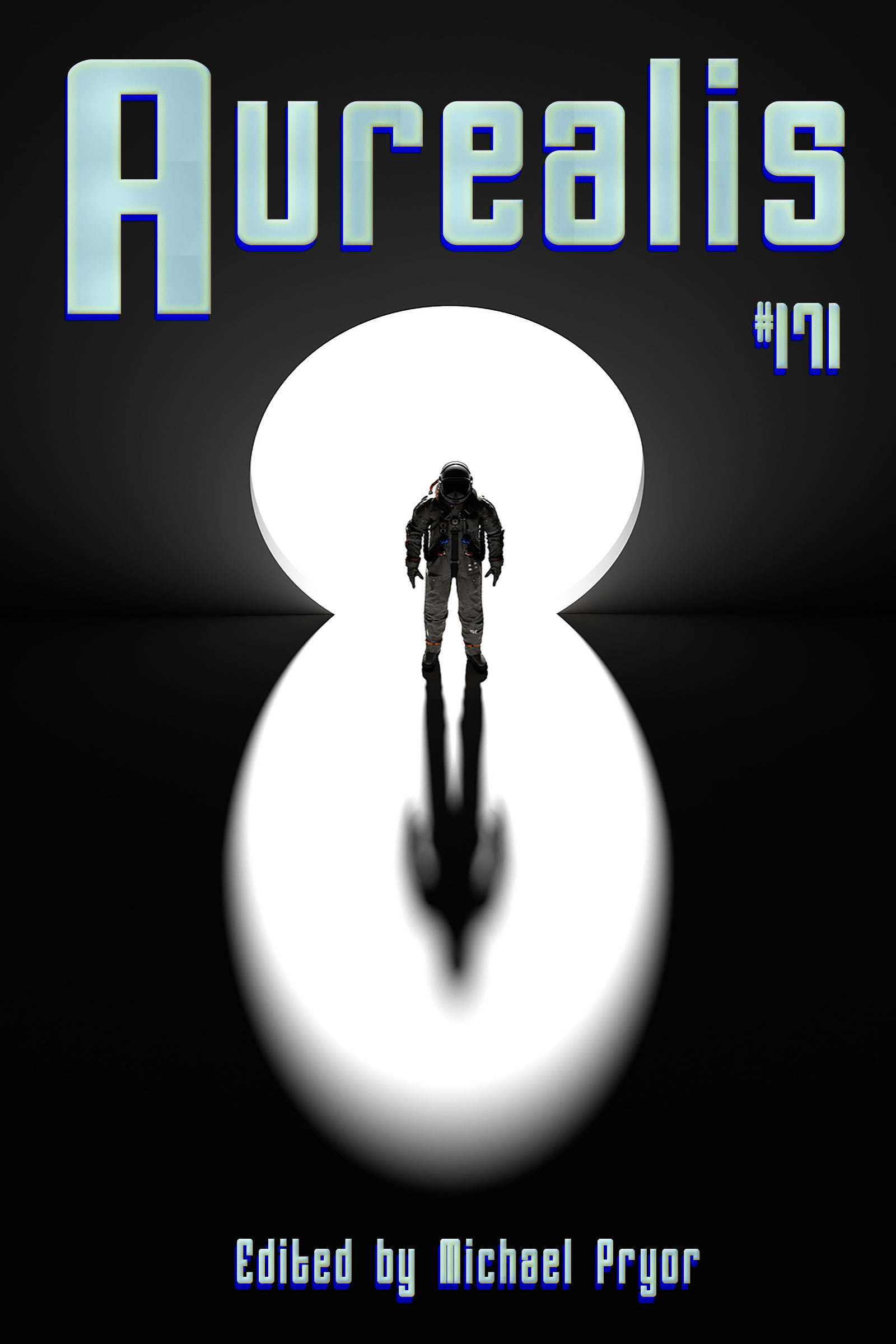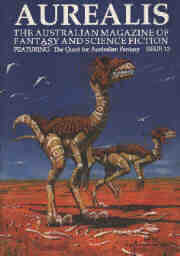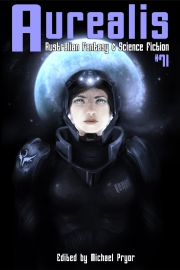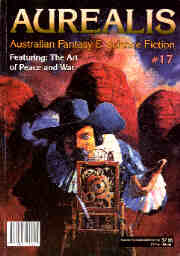Aurealis #171
$3.99
Aurealis #171 presents ‘Dregs of Destiny’ by Ciaran Hannigan, ‘The Guest’ by Ashley Cracknell and ‘Seven Unread Subspace Messages’ by Christopher Henckel. Our compelling non-fiction articles are from Gillian Polack, Clare Rhoden and Amy Laurens. All this and an engrossing Reviews section and superb internal art makes Aurealis truly excellent value for money.
- From the Cloud — Michael Pryor
- Dregs of Destiny — Ciaran Hannigan
- The Guest — Ashley Cracknell
- Seven Unread Subspace Messages — Christopher Henckel
- ‘A Thing Called The Glugs of Gosh’—CJ Dennis and Satirical Fantasy — Gillian Polack
- Heroes and Why We Need Them — Clare Rhoden
- I Don’t Remember Anyone Telling me not to Think': Nationalism in Pratchett’s Monstrous Regiment — Amy Laurens
Reading has become a more stratified activity than ever.
Imagine a Healthy Food pyramid, but instead populated by readers.
At the bottom, sadly, are people who don’t read at all. We’ll leave analysis of whether this section of the community is growing or not to people with massive research grants.
In the middle is a big grey area comprising people who read occasionally, people who dip in and out of reading, and people who go for long periods without reading much but who don’t mind a read every now and then.
At the top are our people—the ones who love a good story, the ones with a reading pile, the self-confessed readers.
But it’s our belief that a new sort of reader is emerging, the ones at the pointiest part of the pointy end of our Reading Pyramid. Perhaps they’ve always been around, but now they’re growing in numbers and becoming a force to be reckoned with.
We call these people the Super-readers.
A Super-reader is distinguished from an ordinary reader by a number of things:
- Their reading pile is potentially life-threatening if it collapses on them.
- They know what a TBR list is, and they fret about it.
- They’re like chain smokers—when they finish a book they must have a new one to go on with.
- They read their favourite books more than once. Many, many times more than once.
- Consequently, they might have more than one copy of a favourite book, as their first has worn out—and YOU CAN’T THROW OUT A BOOK.
- On a train/bus/tram, they’ve become good at reading covers upside down because they’re fascinated by what other people are reading. You never know, someone might be reading what they’re reading and, thus, A CONNECTION IS FORMED!
- A persistent nightmare for a Super-reader is being caught without a book to read. Therefore, they often travel with two (or more) books.
Some rarer characteristics of Super-readers:
- They dress up as characters from their favourite books.
- They write to their favourite authors, praising or questioning about minutiae.
- They write fan fiction.
Regardless of all this, the single defining characteristic of Super-readers is their love of books. This often means they love to talk about books. This, of course, has been facilitated by technology. Super-readers congregate, thanks to the internet. They talk about characters, about back stories, about potential sequels, about rumours of film versions and how they’re bound to spoil the book.
Super-readers are good people in so many ways.
From Dregs of Destiny by Ciaran Hannigan:
‘You know, we really could win this.’
It was Milan who first said it aloud, though it was an old, faded hope. It was the hope that had carried us all this way, dragged us back to our feet after every crushing defeat, kept us fighting through every pyrrhic victory, reclaiming our land inch by bloody inch. Yeah, we had all felt it. But only Milan could be stupid enough to say it.
From The Guest by Ashley Cracknell:
To my friends, I say, sorry. I am not a great orator, just someone who doesn’t own a chair, and so for the benefit of all, I present the definitive version of the story.
From Seven Unread Subspace Messages by Christopher Henckel:
I’m a very responsible guy. I work at the Organic Starship Health Facility (the OSHF) on Centauri Station.
If you ain’t been here before, I’ll tell you about it. This place is ancient. It’s literally the oldest space station still in operation. It looks like a stack of galactic-sized tractor tires ploughing through the exosphere around Proxima Centauri c.
From ‘A Thing Called The Glugs of Gosh’—CJ Dennis and Satirical Fantasy by Gillian Polack:
Norman Lindsay mentioned ‘a thing called The Glugs of Gosh’ in a 1917 letter to poet Leon Gellert. He then added: ‘It is now in my dust bin.’ Lindsay was certain that Dennis would be forgotten.
From Heroes and Why We Need Them by Clare Rhoden:
The hero is dead, killed off by two world wars and a sophisticated readership demanding more modern stories. At least, this is supposed to be the case in ‘literary’ or non-genre fiction.
From I Don’t Remember Anyone Telling me not to Think': Nationalism in Pratchett’s Monstrous Regiment by Amy Laurens:
If Terry Pratchett can be said to have a purpose with his Discworld series beyond mere entertainment, it might be to demand that his readers learn to think critically about the world they are living in.





